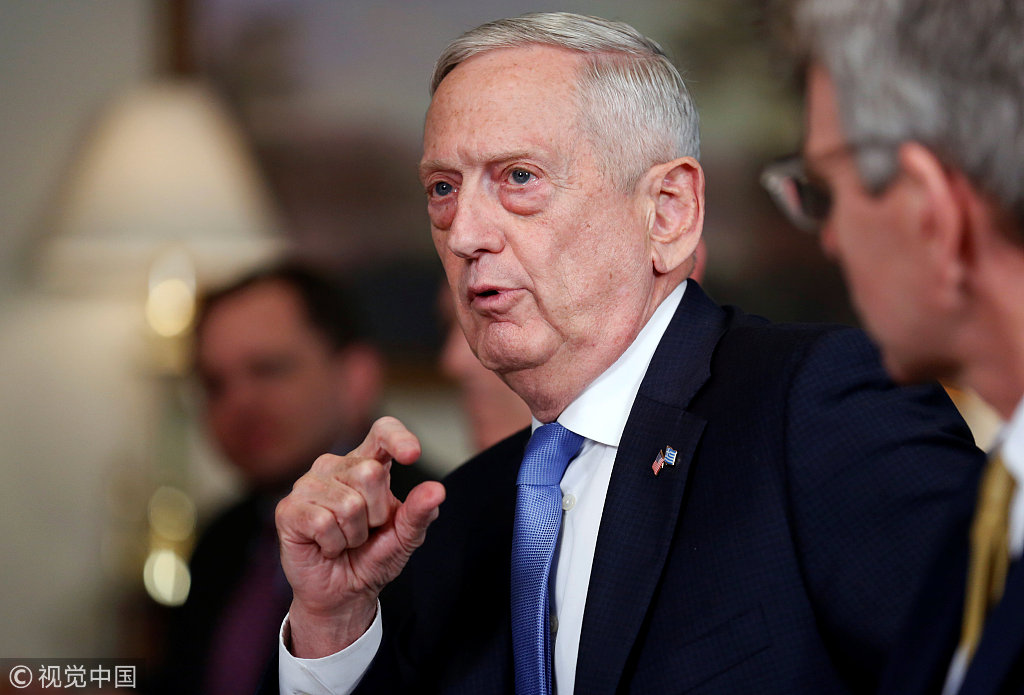Defense secretary to leave; US House funds wall


WASHINGTON — US Defense Secretary Jim Mattis abruptly said he was quitting on Thursday after falling out with US President Donald Trump over his foreign policies, one day after Trump rebuffed top advisers and decided to pull all US troops out of Syria.
In another major story out of the capital, the House of Representatives on Thursday evening added $5 billion to a government spending bill for Trump's wall on the southern border with Mexico, which raised the chances of a partial federal government shutdown on Saturday.
The bill must return to the Senate, where it is unlikely to find the Democratic votes needed to pass it. If the impasse continues, funding for agencies responsible for federal law enforcement activities, airport security screenings, space exploration and farm programs will lapse at midnight on Friday.
Trump had said he would not sign a Senate-passed bill to keep the government running through Feb 8 because it lacked funds for the wall, so Republicans in the House of Representatives scrambled to add the funding.
Mattis announced plans to resign after a face-to-face meeting with Trump in which they aired their differences, a senior White House official said.
"Because you have a right to a Secretary of Defense whose views are better aligned with yours on these and other subjects, I believe it is right for me to step down from my position," Mattis said in his resignation letter, released by the Pentagon.
Trump announced on Wednesday that US troops in Syria would be withdrawn. On Thursday, officials said the president was considering a substantial US pullout from the 17-year-long conflict in Afghanistan.
Mattis, a retired Marine general whose embrace of NATO and America's traditional alliances often put him at odds with Trump, had opposed the decision on Syria, officials said.
When Mattis interviewed with Trump for the job in 2016, he split with president-elect on a host of issues, including on NATO and the use of torture.
But Trump increasingly acted on his own instincts on a host of national security issues, choosing an "America First" agenda that contradicted Mattis' core beliefs.
REUTERS

































